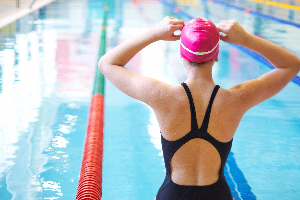Self-talk is the internal conversation in your head or spoken out loud.
Purposeful self-talk may include repeating what you have heard, finding a helpful word to use or creating your own helpful phrase. Visualization uses the “mind’s eye” to see the right way to do a movement or play the situation.
Correct self-talk and visualization are linked to success in a wide variety of sports, have an important role in your success as an athlete and are important for your recovery should you experience a sports injury. .
Use correct self-talk and visualization to:
- Increase motivation, such as visualizing you win an event or competition. If you have the correct mindset, your head is in the game. You can hear and see what needs to be done to win and are more likely to follow through on a game plan or strategy for competition.
- Improve specific skills, such as a free throw or volleyball serve. If you can correctly see a skill and talk through the motions while doing it, you will be more likely to master it.
Olympic athletes have linked use of correct visualization and self-talk to their “best performance ever.” Whether you’re exercising for health or to compete, correct use of these two tools can help put you in a confident frame of mind about your fitness goals and help you see yourself achieving your goals.
The same holds true with a sports injury. Wrong-headed thinking promotes negative self-talk and imagery that can make recovery from a sports injury more difficult and hurt your performance. Appropriate self-talk and visualization can help in your recovery.
Proper self-talk and visualization are easy to do:
- Start by taking a few minutes to slowly inhale and then, slowly exhale while imaging yourself doing the correct moves in your sport.
- Or, get into a comfortable position, take a few slow deep breaths, relax your muscles, and then talk through the activity, repeating coaching advice you’ve received.
Another suggestion includes engaging in progressive muscle relaxation, a technique that promotes awareness of tension and relaxation by tensing and relaxing specific muscle groups. Incorporating this technique after a training session can help with muscle recovery.
Applying appropriate self-talk and visualization correctly, takes practice. It’s training for your mind. Time spent during and outside of training to engage in practicing imaging exercises helps hardwire your brain’s response for when you’re in the midst of competition or a challenging workout. Jotting down all the details of a particular skill or motion in script form may be a good method to capture the information you need to rehearse.
Article submitted by Pain Management Psychologist Timothy Lichtenwald, PsyD, Marshfield Clinic Marshfield Medical Center.
Share comments or questions on this information email: sports.medicine@marshfieldclinic.org.
